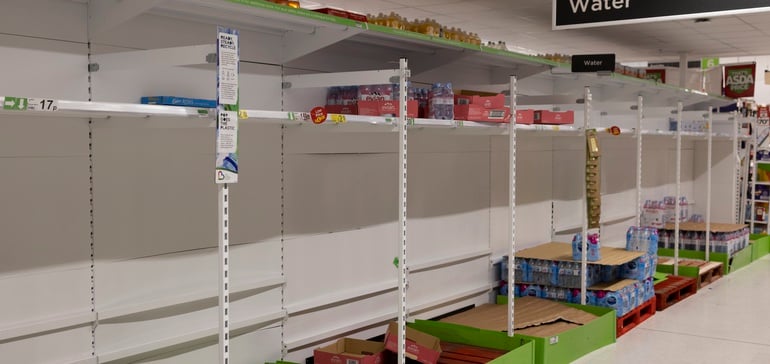UK RETAIL NEWS: first ever £12 billion Christmas
Grocery industry experts from Kantar predicted December would break records in the UK, with sales...
Thank you for visiting us!
This website does not completely support on Internet Explorer. Please use another browser.
Apologies for inconvenience
By: The Grocer on Feb 14, 2022 6:19:30 PM

As the Covid-19 pandemic recedes in the UK, concern is turning to inflation. This poses a powerful threat to households – as explored in IGD’s latest Viewpoint report.
Rising prices for utilities and fuel accounted for much of the inflation pressure in December, and these contributions are expected to increase over 2022. On top of this, food and drink inflation is now having a noticeable effect.
In summer 2021, wages rose rapidly, allowing some households to absorb inflation, but wage growth is now slowing and has been overtaken by prices. IGD’s ShopperVista data shows that shopper confidence remains low. Food and energy prices are cited consistently as key financial concerns, and fears over future pricing are growing leading to concerns over the cost of living crisis.
The least well-off are especially vulnerable and we must expect close scrutiny of pricing in the media and on social channels. Campaigners such as Jack Monroe have focused attention on this in recent days. ShopperVista shows that 28% of the least affluent food and consumer goods shoppers expect to focus more on saving money in the year ahead, up from 18% in June 2021.
IGD anticipates that shoppers will become more mobile and opportunist in 2022, switching retailers and brands to maximise their value for money. For food and consumer goods businesses, the immediate challenge will be securing shopper loyalty by assuring them that they are getting the best possible value.
As inflation becomes the central concern for leaders in the food and consumer goods supply chain, it will undoubtedly create tension in relationships. Yet this is a time when the industry needs to be strong to deal with shared challenges – new border measures, labour shortages and regulatory changes to name but a few.
More changes are expected imminently as the government prepares to reveal its new food strategy. In addition, businesses are making ambitious commitments – the COP26 conference demonstrated that businesses can often move ahead of governments in this area.
There is no doubt it is an incredibly tough time to run a food and consumer goods business. In spite of this, businesses are adapting, building resilience and developing practices that will deliver for shoppers into the future. ShopperVista data shows trust in businesses to keep food prices low may be faltering, but trust and goodwill in other areas remain strong. Most shoppers are confident that businesses will act responsibly.
The question is how to maintain the momentum of industry development in the face of growing economic pressures, meeting shorter-term and longer-term goals at the same time.
The lessons learned during the first weeks of the pandemic provide a model. Businesses embarked on a steep learning curve, moving fast and combining forces to serve those in need. Equally importantly, we saw a change in approach by government, with increasing willingness to work together in the public interest – subject to strict oversight. As a result, we saw innovations that would have been unthinkable previously, such as businesses sharing information, sharing stock and even contemplating sharing workers in order to protect vulnerable citizens.
This experience will be invaluable as we look to the challenges of the future and conflicts over pricing must not be allowed to roll back the progression of business culture.
So while we’ve been pondering if inflation will kill the recovery, perhaps the bigger question is if it will kill collaboration on important issues such as addressing Scope 3 carbon emissions, developing sustainable packaging systems, and supporting consumers to shift to healthier and more sustainable diets.
We mustn’t let it. Track our latest blogs on UK retail news here.
This article first appeared on the grocer
Grocery industry experts from Kantar predicted December would break records in the UK, with sales...
UK Consumers are choosing own-brand products to try and manage their ever-increasing grocery bills...
With grocery inflation at a “record high” consumers are favouring own label lines over branded...